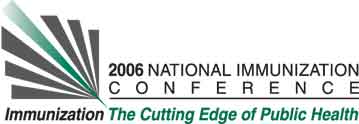Kathleen Worthing Gustafson, Immunization Branch, County of San Diego Health and Human Services Agency, Immunization Branch (P511B), P.O. Box 85222, San Diego, CA, USA, Claudia Aguiluz, and Anne Cordon, San Diego County Immunization Branch, County of San Diego Health and Human Services Agency, PO Box 85222, Mail Stop P511B, 3851 Rosecrans Street, San Diego, CA, USA.
Learning Objectives for this Presentation:
By the end of the presentation participants will be able to:
Describe differences between California and Baja California immunization systems
Discuss challenges to immunization of bi-national children
Review tools developed collaboratively to address these challenges.
Background:
The Binational Immunization Initiative (BII) was established in 2001 to allow immunization organizations to work together to improve immunization coverage among children living in the San Diego-Tijuana region. Members have collaborated on a variety of projects to improve communication, share messages, and promote understanding of immunization issues between two health systems accessed by hundreds of thousands of Border residents.
Setting:
Public Health and community-based organizations, clinics, schools and child care centers in the San Diego-Tijuana region
Population:
Agencies providing services to Latino populations and to binational children; those who may need to understand and interpret immunization records, messages and policies of the Mexican immunization system.
Project Description:
Health organizations in San Diego and Tijuana recognized the need to improve communication on immunization issues. The Binational Immunization Initiative developed, implemented, evaluated and improved the Binational Immunization Guide, to allow health practitioners to interpret and understand one another's immunization records. Training promotoras and clinic, school and child care center staff in its use placed the tool in the hands of those who could ensure the appropriate immunization of children in the border region. The 2004 and 2005 Vaccination Weeks in the Americas included binational physicians' forums for sharing immunization information. Border-wide Binational Health Week activities provided additional training in immunization issues to promotoras and increased opportunities for continuing collaboration.
Results/Lessons Learned:
Strong demand for the Guide and for binational training on immunization issues from health and community organizations far beyond the Border indicate need for better communication between the two health systems. Sharing information on immunization practices and policies is effective in reducing barriers between two healthcare systems.
See more of What Coalitions and Partnerships Can Do to Increase Immunization Rates
See more of The 40th National Immunization Conference (NIC)

